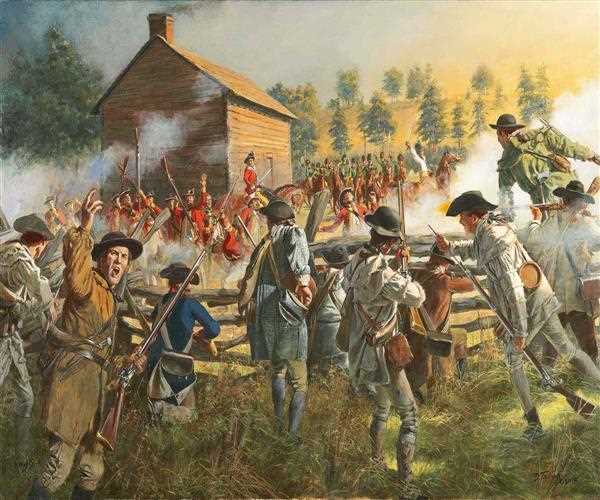The American Revolution was an occasion of clearing overall significance. An expensive war that kept going from 1775 to 1783 anchored American freedom and gave progressive changes of government and society the opportunity to proceed. At its center, the war set pioneers who needed freedom and the formation of a republic against the intensity of the British crown, which needed to keep its domain entirety. In specific circumstances and in specific spots, Americans battled different Americans in what turned into a common war.

From the family whose homestead was attacked, through the shipper who couldn't exchange, to the slave who entered British lines on the guarantee of flexibility, everybody had a stake in the result.
1763-1774 From Protest to Revolt
England's triumph in the Seven Years War finished her challenge with France over North American, yet started another contention with her settlements. Numerous homesteaders scrutinized Britain's choice to keep an armed force in after war America, and every one of them restricted Parliament's push to fund that armed force by burdening pioneers. Parliament couldn't impose them, the homesteaders demanded, on the grounds that they had no agents in the House of Commons, and British subjects must be burdened with the assent of their chose delegates. At the point when Parliament declined to down, provincial swarms constrained stamp merchants to leave. Coordinate activity by interracial urban swarms was a regular event in the number one spot up to the Revolution.
Parliament canceled the Stamp Act in March 1766, yet in addition, passed a Declaratory Act confirming its entire specialist over the pilgrims. The following year, it looked to raise income through new obligations on the glass, lead, paint, paper, and tea, known as the "Townshend obligations." The pioneers reacted with an organized refusal to import British products. English troops sent to Boston to uphold the obligations just added to the strains.
Hostility amongst regular citizens and British troops prompted an episode on March 5, 1770, where British troops let go on a rowdy horde, slaughtering five individuals. Neighborhood radicals called it the "Boston Massacre." In that same year, Parliament revoked the majority of the Townshend obligations with the exception of that on tea. In 1773, Parliament reaffirmed the expense on tea and passed a Tea Act intended to enable British East India To organization rival carried tea. Pilgrims in a few ports constrained tea boats to come back to Britain without emptying.
1775 The War Begins
The military conflicts there and along the British withdraw course started what turned into the Revolutionary War. News of the battling spread rapidly, and volunteer officers hurried to a common camp in Cambridge, Massachusetts. Before long, this power had the British armed force suppressed in Boston, around then a landmass with only one thin connect to the terrain. The Second Continental Congress, in the wake of amassing on May 10, assumed the responsibility of the temporary Massachusetts compel and designated Virginian George Washington to order this "Mainland Army." In June British troops disappointed an American endeavor to sustain Breed's Hill sitting above Boston, however, endured overwhelming misfortunes in the "Skirmish of Bunker Hill." Thereafter, Gen.Late in August, Congress sent troops to take Canada, a task that would take whatever remains of the year and end in catastrophe. Be that as it may, as the year shut, American troops under Col. Henry Knox started dragging 55 guns from Ticonderoga to the attack at Boston.